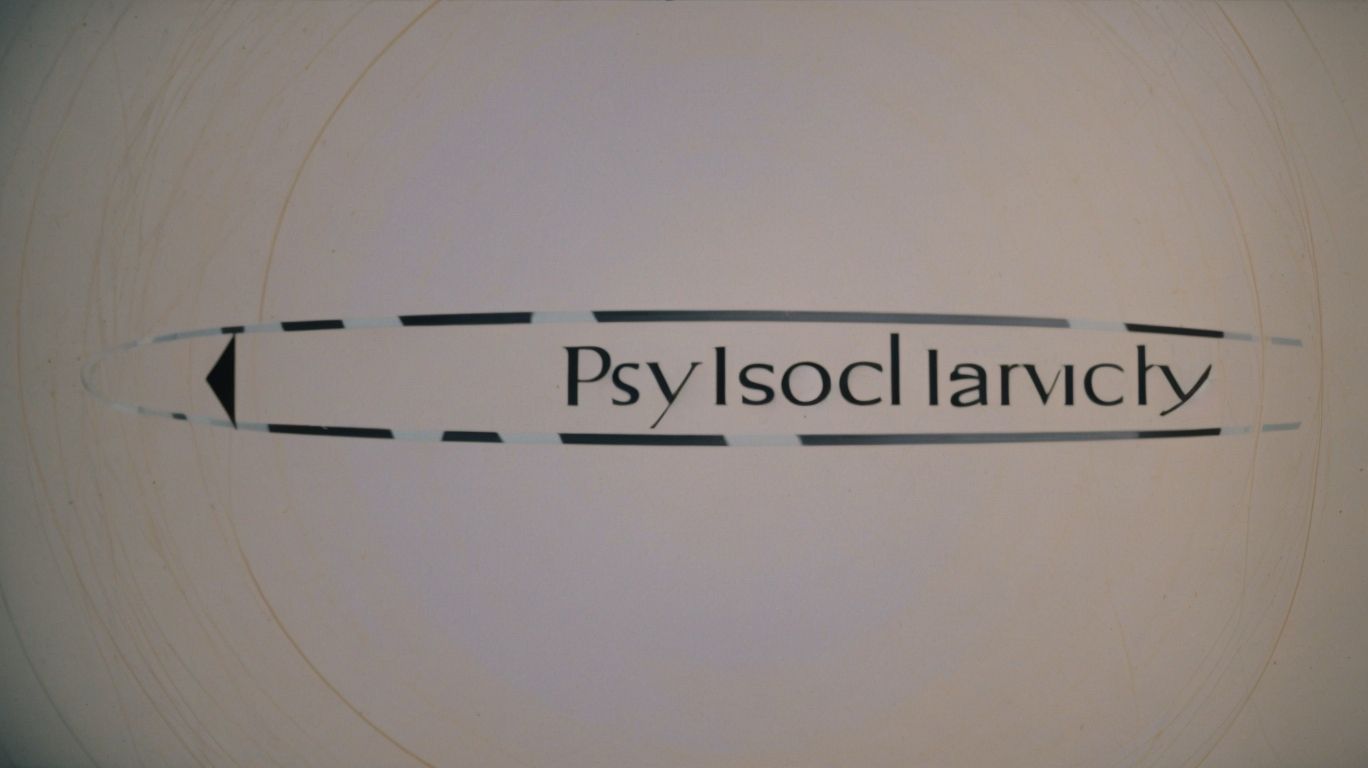Have you ever wondered about the difference between psychology and philosophy? These two fields may seem similar at first glance, but they actually have distinct focuses and methodologies.
In this article, we will delve into the main branches of psychology and philosophy, examine their similarities and differences, and explore the potential overlaps between the two disciplines. We will also discuss the criticisms of overlapping between psychology and philosophy, giving you a comprehensive understanding of these varied perspectives.
Contents
- 1 Key Takeaways:
- 2 What Is Psychology?
- 3 What Is Philosophy?
- 4 How Are Psychology And Philosophy Similar?
- 5 How Are Psychology And Philosophy Different?
- 6 What Are The Potential Overlaps Between Psychology And Philosophy?
- 7 What Are The Criticisms Of Overlapping Between Psychology And Philosophy?
- 8 Frequently Asked Questions
- 8.1 1. What is the main difference between psychology and philosophy?
- 8.2 2. Can psychology and philosophy be considered as completely separate fields?
- 8.3 3. How do psychologists and philosophers approach the study of human behavior and thought?
- 8.4 4. What are some examples of topics studied in psychology and philosophy?
- 8.5 5. Can psychology and philosophy offer different perspectives on the same issue?
- 8.6 6. How can understanding the differences between psychology and philosophy benefit us?
Key Takeaways:
What Is Psychology?
Psychology is the scientific study of the human mind and behavior, encompassing a wide range of topics and approaches to understanding the complexities of human nature and experience.
Psychology is a complex field that delves into both cognitive processes, such as thinking and memory, and emotional aspects, such as motivation and mental health. It also explores social interactions, group behavior, and cultural influences on individuals. Additionally, psychology examines developmental stages across the lifespan, from infancy to old age, providing insight into how individuals evolve and cope with life’s challenges.
What Are The Main Branches Of Psychology?
The main branches of psychology encompass various fields and scientific approaches that explore different aspects of human behavior, cognition, and mental processes.
One of the prominent fields within psychology is cognitive psychology. It focuses on studying mental processes such as perception, attention, language, memory, and problem-solving.
Another significant area is clinical psychology. It involves the assessment, diagnosis, and treatment of mental disorders and psychological challenges.
Additionally, developmental psychology is dedicated to understanding human growth and development across the lifespan. It addresses aspects such as social, emotional, and cognitive changes.
These diverse fields within psychology contribute to a comprehensive understanding of the complexities of the human mind and behavior.
What Is Philosophy?
Philosophy is a discipline that delves into the fundamental nature of existence, reality, and knowledge, addressing central concerns related to the nature of truth, ethics, and the human experience.
It navigates through the complexities of morality, exploring the ethical implications of human actions and the principles that guide them.
Philosophy reflects on the concepts of beauty, justice, and knowledge, seeking to unravel the mysteries of the universe and the human mind. This intellectual quest often leads philosophers to ponder profound existential questions, contemplating the meaning of life and the purpose of our existence.
What Are The Main Branches Of Philosophy?
The main branches of philosophy encompass diverse traditions, including Western philosophy, Eastern philosophy, and African Philosophy, each offering unique perspectives on metaphysics, ethics, and epistemology.
Western philosophy, rooted in the ideas of ancient Greek thinkers such as Socrates, Plato, and Aristotle, delves into questions of existence, knowledge, and the nature of reality. It encompasses various schools of thought, including rationalism and empiricism, and has had a profound impact on the development of science and politics.
Eastern philosophy, encompassing traditions from India, China, and Japan, explores concepts such as karma, dharma, and the interconnectedness of all beings. It includes schools of thought like Hinduism, Buddhism, and Confucianism, emphasizing spiritual enlightenment, ethical living, and inner harmony.
African Philosophy, drawing from diverse cultural and indigenous traditions, focuses on communal values, the interconnectedness of nature, and the ethical dimensions of human existence. It addresses issues of social justice, collective identity, and the relationship between individuals and their communities.
How Are Psychology And Philosophy Similar?
Psychology and philosophy share similarities in their study of the nature of human behavior, the human mind, and the pursuit of understanding the complexities of human existence.
Both disciplines seek to unravel the nuanced layers of human cognition, emotions, and societal interactions. While psychology focuses on empirical research and clinical observations to comprehend mental processes, philosophy delves into abstract inquiries about consciousness and moral reasoning.
They intersect in exploring the fundamental questions of identity, free will, and consciousness, shaping a comprehensive understanding of human existence. Their complementary perspectives enrich the pursuit of unraveling the complexities and intricacies of human nature.
Both Study The Nature Of Human Behavior
Both psychology and philosophy delve into the study of human behavior, seeking to understand the underlying nature and complexities of human actions, motivations, and emotions.
Psychology focuses on employing scientific methods to comprehend the mind’s intricacies, exploring various theories such as behavioral, cognitive, and social psychology to interpret human behavior.
In contrast, philosophy contemplates human conduct through a critical analysis of ethical, moral, and existential inquiries, addressing the deeper meaning and purpose behind human actions.
Both disciplines intersect in their examination of consciousness, free will, and the interconnectedness of thoughts and behavior, fostering a holistic comprehension of the human experience.
Both Utilize Critical Thinking
Both psychology and philosophy emphasize the utilization of critical thinking in exploring complex concepts, theories, and ethical dilemmas, fostering analytical and evaluative skills in their respective inquiries.
Psychology delves into the intricate workings of the human mind, requiring critical thinking to analyze behavior, cognitive processes, and emotions. It entails assessing the validity of research findings, interpreting data, and interpreting psychological phenomena.
On the other hand, philosophy engages in critical thinking to question fundamental beliefs, ponder ethical quandaries, and decipher the nature of reality. It involves scrutinizing arguments, reasoning through philosophical problems, and evaluating diverse worldviews.
Both disciplines rely on analysis and evaluation to form reasoned conclusions based on evidence and sound logic, fostering a deeper understanding of the complexities inherent in human cognition and the existential fabric of the world.
Both Have The Goal Of Understanding The Human Mind
Both psychology and philosophy share the overarching goal of comprehending the complexities and mysteries of the human mind, aiming to unravel the cognitive, emotional, and perceptual aspects of human consciousness.
Psychology delves into the empirical study of human behavior, utilizing scientific methodologies to analyze mental processes and behavior patterns. In contrast, philosophy investigates the fundamental nature of consciousness, contemplating existential questions about reality, perception, and knowledge.
These fields converge in exploring theories like dualism, monism, and phenomenology, which illuminate the interplay between the mind, body, and external stimuli. Moreover, philosophical concepts such as free will, determinism, and morality enrich psychological inquiries, fostering a holistic understanding of human cognition and behavior.
How Are Psychology And Philosophy Different?
Psychology and philosophy diverge in their focus of study, methodology, and application in real-life contexts, reflecting distinct approaches to understanding human nature and the complexities of existence.
Psychology primarily focuses on the scientific study of behavior and mental processes. This involves utilizing empirical research and statistical analysis to investigate cognitive, emotional, and social processes.
In contrast, philosophy emphasizes rational inquiry into fundamental questions concerning existence, knowledge, ethics, and the nature of reality. This discipline employs critical thinking and logical reasoning to develop conceptual frameworks.
While psychology seeks to provide practical insights for addressing mental health, education, and organizational effectiveness, philosophy contributes to ethical and moral reasoning, and the development of intellectual perspectives.
Focus Of Study
The primary difference between psychology and philosophy lies in their focus of study, with psychology emphasizing empirical investigation of human behavior and mental processes, while philosophy delves into conceptual and theoretical examinations of human nature and existence.
In psychology, empirical investigations are conducted through systematic observation, experimentation, and analysis of data, aiming to uncover patterns and understand the underlying mechanisms driving human behavior and cognition. This scientific approach allows psychologists to formulate theories and test hypotheses, contributing to a growing body of knowledge supported by evidence.
On the other hand, philosophical examinations revolve around conceptual analysis and critical reasoning, addressing fundamental questions about the nature of knowledge, reality, ethics, and the mind. Philosophers explore intricate concepts such as consciousness, free will, and morality, engaging in thought experiments and logical deductions to illuminate the human experience.
Methodology
Psychology and philosophy differ in their methodologies, with psychology employing empirical research, experimentation, and statistical analyses, while philosophy utilizes conceptual analysis, logical reasoning, and thought experiments as primary modes of inquiry.
Empirical research in psychology focuses on gathering observable and measurable data to test hypotheses and draw conclusions, often through controlled experiments and surveys. This approach allows psychologists to systematically study behavior, cognition, and emotion, providing valuable insights into human nature and mental processes.
On the other hand, philosophy emphasizes conceptual analysis to examine fundamental questions about existence, knowledge, ethics, and reality. Through logic and critical reasoning, philosophers explore abstract ideas, challenge assumptions, and offer nuanced interpretations that contribute to philosophical discourse.
Application In Real Life
Psychology and philosophy diverge in their practical applications in real-life contexts, with psychology contributing to therapeutic interventions, mental health practices, and behavioral interventions, while philosophy offers conceptual frameworks and ethical considerations for understanding human behavior and societal dynamics.
Psychology, as a scientific discipline, is dedicated to understanding the human mind and behavior through empirical research and clinical observations. Its applications extend to areas such as counseling, psychotherapy, and cognitive-behavioral interventions, providing valuable tools for addressing mental health challenges and enhancing overall well-being.
Philosophy, on the other hand, delves into abstract concepts of morality, justice, and the nature of reality, guiding ethical deliberations and critical thinking in diverse contexts, including medical ethics, political philosophy, and social justice initiatives.
What Are The Potential Overlaps Between Psychology And Philosophy?
There exist potential overlaps between psychology and philosophy in domains such as existential psychology, cognitive behavioral therapy, and positive psychology, where philosophical insights and psychological frameworks converge to address human well-being and personal development.
Existential psychology delves into the fundamental aspects of human existence, grappling with questions of meaning, freedom, and responsibility. It draws from existential philosophy to inform therapeutic practices.
On the other hand, cognitive behavioral therapy combines philosophical inquiry with behavioral techniques to help individuals overcome irrational beliefs and maladaptive behaviors. This approach is rooted in philosophical principles.
Positive psychology focuses on enhancing strengths and cultivating well-being. It draws from philosophical wisdom to explore the virtues and values that contribute to a fulfilling life.
These integrated perspectives highlight the mutual contributions of psychology and philosophy. They shed light on the complex interplay between cognitive, emotional, and existential realms.
Existential Psychology
Existential psychology represents a potential overlap between psychology and philosophy, focusing on the exploration of human existence, meaning, and personal fulfillment, integrating philosophical reflections with psychological insights to address profound aspects of human well-being and identity.
This field of study delves into the existential concerns and experiences of individuals, encompassing themes such as freedom, responsibility, and anxiety.
By drawing from philosophical concepts like existentialism and phenomenology, existential psychology provides a framework for understanding how individuals perceive and navigate the world, grapple with existential angst, and seek to cultivate a sense of authenticity in their lives.
Existential psychology explores the significance of existential dilemmas in shaping individuals’ mental health and emotional well-being, acknowledging the intricate interplay of philosophical reflections and psychological dynamics in producing a holistic understanding of human existence.
Cognitive Behavioral Therapy
Cognitive behavioral therapy serves as a potential overlap between psychology and philosophy, incorporating cognitive processes and behavioral patterns, while integrating philosophical principles and practical psychological techniques to address mental health and emotional well-being.
The integration of philosophical principles in cognitive behavioral therapy provides a unique approach to understanding and treating mental health. By infusing concepts such as existentialism, stoicism, or mindfulness into therapy sessions, individuals are encouraged to explore the meaning of their experiences, make value-based decisions, and develop resilience in the face of adversity.
The application of philosophical principles in cognitive behavioral therapy helps individuals challenge irrational beliefs and develop a more rational, balanced perspective, thereby enhancing their psychological well-being. This convergence of philosophical insights with evidence-based psychological practices creates a comprehensive framework for personal growth and emotional resilience.
Positive Psychology
Positive psychology represents an area of potential convergence between psychology and philosophy, emphasizing the pursuit of human flourishing, well-being, and the cultivation of virtues, drawing on psychological research and philosophical perspectives to promote a fulfilling and meaningful life.
In positive psychology, the integration of psychological research with philosophical perspectives offers a comprehensive understanding of human thriving.
Psychology provides empirical evidence and insights into the mechanisms underlying happiness, resilience, and personal growth, while philosophy contributes ethical and existential frameworks for examining the nature of a good life and the essence of human values.
This synergy enables a multifaceted approach to addressing fundamental questions about human existence, thus offering profound insights into promoting well-being and flourishing.
What Are The Criticisms Of Overlapping Between Psychology And Philosophy?
The potential overlaps between psychology and philosophy have faced criticisms related to the blurring of disciplinary boundaries, the limitations of interdisciplinary approaches, and the challenges of integrating distinct methodologies and theoretical frameworks.
Despite the inherent interconnectedness and complementary nature of the two fields, critics argue that the fluid boundaries between psychology and philosophy can lead to confusion and ambiguity in terms of delineating distinct research questions and methods.
The interdisciplinary approaches often struggle to fully capture the complexities of each discipline, leading to potential oversimplification or neglect of crucial aspects.
The integration of methodologies from psychology and philosophy can be challenging due to their differing empirical and conceptual foundations. Psychologists often rely on empirical data and experimental methods, while philosophers emphasize conceptual analysis and rational argumentation.
Theoretical integration also presents challenges as psychological theories tend to focus on empirical observations and quantifiable phenomena, whereas philosophical theories may delve into abstract and metaphysical concepts that are not easily addressed through empirical research.
Frequently Asked Questions
1. What is the main difference between psychology and philosophy?
Psychology is a scientific discipline that focuses on studying human behavior and mental processes, while philosophy is a branch of knowledge that examines fundamental questions about existence, knowledge, and values.
2. Can psychology and philosophy be considered as completely separate fields?
No, there is some overlap between psychology and philosophy, especially in areas such as cognitive psychology and philosophy of mind.
3. How do psychologists and philosophers approach the study of human behavior and thought?
Psychologists use scientific methods to conduct experiments and gather data, while philosophers use critical thinking and reasoning to analyze concepts and ideas.
4. What are some examples of topics studied in psychology and philosophy?
Psychology covers topics such as personality, social behavior, and mental disorders, while philosophy explores concepts like free will, consciousness, and ethics.
5. Can psychology and philosophy offer different perspectives on the same issue?
Yes, they can. For example, while psychology may focus on the psychological causes of a behavior, philosophy may examine the ethical implications of that behavior.
6. How can understanding the differences between psychology and philosophy benefit us?
By understanding the different approaches and perspectives of these fields, we can gain a deeper understanding of ourselves and the world around us.




